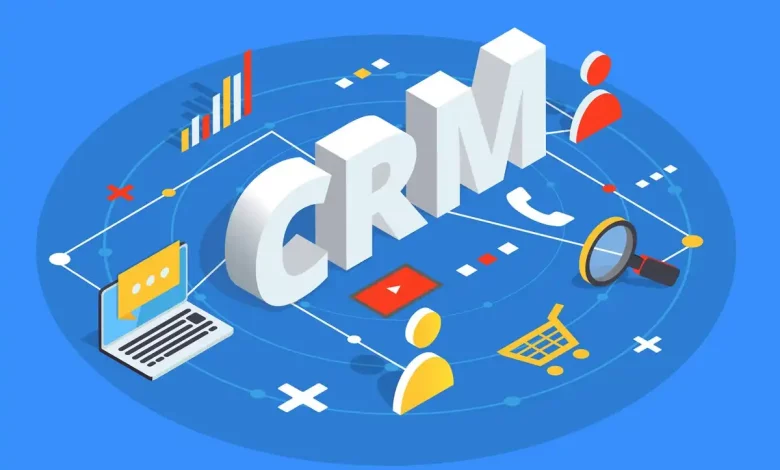The CRM software used in customer relationship management And How they are Used.

Customer Relationship Management (CRM) software encompasses a variety of tools and systems that organizations use to manage interactions with customers, streamline processes, and enhance overall customer satisfaction. Below is a list of some popular CRM software along with explanations of how they are used:
1. Salesforce
Overview: Firstly Salesforce is one of the leading CRM platforms that offers a comprehensive suite of tools for sales automation, customer service, marketing automation, and analytics.
How It’s Used:
- Sales Management: Additionally Salesforce enables sales teams to track leads, opportunities, and accounts. They can automate tasks and monitor performance through dashboards.
- Customer Service: It helps manage customer support tickets, track cases, and streamline service workflows.
- Marketing Automation: Users can create targeted marketing campaigns, segment audiences, and analyze the effectiveness of marketing efforts.
2. HubSpot CRM
Overview: In addition HubSpot is a user-friendly CRM solution primarily geared towards small to medium-sized businesses. It offers a free base version with paid upgrades.
How It’s Used:
- Lead Management: Users can track leads through a sales pipeline, manage contact information, and log interactions automatically.
- Email Tracking and Automation: Additionally HubSpot allows for email communications to be tracked and automated, enhancing customer outreach.
- Reporting: Users can create reports and dashboards to analyze sales performance and marketing ROI.
3. Microsoft Dynamics 365
Overview: Microsoft Dynamics 365 combines CRM and ERP capabilities, offering an integrated solution for sales, customer service, marketing, and supply chain management.
How It’s Used:
- Sales Automation: More so It helps teams manage customer relationships by tracking sales cycles, forecasting sales, and managing customer accounts.
- Customer Insights: The platform provides deep insights using AI and analytics, allowing businesses to understand customer needs and behavior better.
- Integration: In addition it Easily integrates with other Microsoft products, facilitating collaboration and communication across departments.
4. Zoho CRM
Overview: And Also Zoho CRM is a cloud-based platform designed for businesses of all sizes. It offers a variety of tools for sales and marketing automation.
How It’s Used:
- Customization: Users can create custom modules and fields to adapt the CRM to specific business needs.
- Multichannel Communication: In addition Zoho CRM facilitates communication across email, social media, and phone, allowing for a 360-degree view of customer interactions.
- Analytics and Reporting: Offers advanced reporting features to track performance metrics and sales forecasts.
5. Pipedrive
Overview: Pipedrive is a sales-focused CRM that is designed to visualize the sales pipeline and manage customer relationships effectively.
How It’s Used:
- Pipeline Management: Users can customize their sales pipeline stages, making it easier to manage leads and track deals.
- Activity Reminders: Pipedrive sends reminders for follow-ups and scheduled activities, helping sales teams stay organized.
- Integrations: Seamlessly integrates with third-party applications, enhancing overall functionality.
6. Fresh sales (part of Freshworks)
Overview: Freshsales is a CRM solution that offers features such as AI-based lead scoring, sales tracking, and email management.
How It’s Used:
- AI-Powered Insights: Uses AI to score leads based on their engagement and likelihood to buy, thus prioritizing sales efforts.
- Contact Management: Users can track all the details about contacts, including interactions and customer data.
- Automation: In addition it Automates routine tasks, like sending follow-up emails and scheduling meetings, enabling sales teams to focus on closing deals.
7. Insightly
Overview: Insightly is a CRM and project management tool that is particularly useful for small businesses.
How It’s Used:
- Project Management: Users can manage projects directly related to customer accounts to ensure timely delivery.
- Contact Management: More so Organizes customer information and interactions for easy access and management.
- Reporting: Offers reporting tools to analyze sales activities, project progress, and customer performance metrics.
8. Nimble
Furthermore Overview: Nimble is a social CRM that focuses on building relationships through social media and personal connections.
How It’s Used:
- Social Media Integration: Aggregates social media profiles of contacts, facilitating engagement through various channels.
- Relationship Management: And also it Helps track interactions, engagement levels, and activity history to strengthen relationships.
- Task Management: Users can set reminders for important follow-ups, making relationship management proactive.
Conclusion
In conclusion These CRM software solutions enable businesses to better understand and manage their relationships with customers. By utilizing these tools, organizations can streamline their processes, improve communication, enhance customer satisfaction, and ultimately drive sales and growth. And also Each software has unique features tailored to different business needs, ensuring that companies of all sizes can find a suitable solution for managing their customer relationships effectively.





One Comment